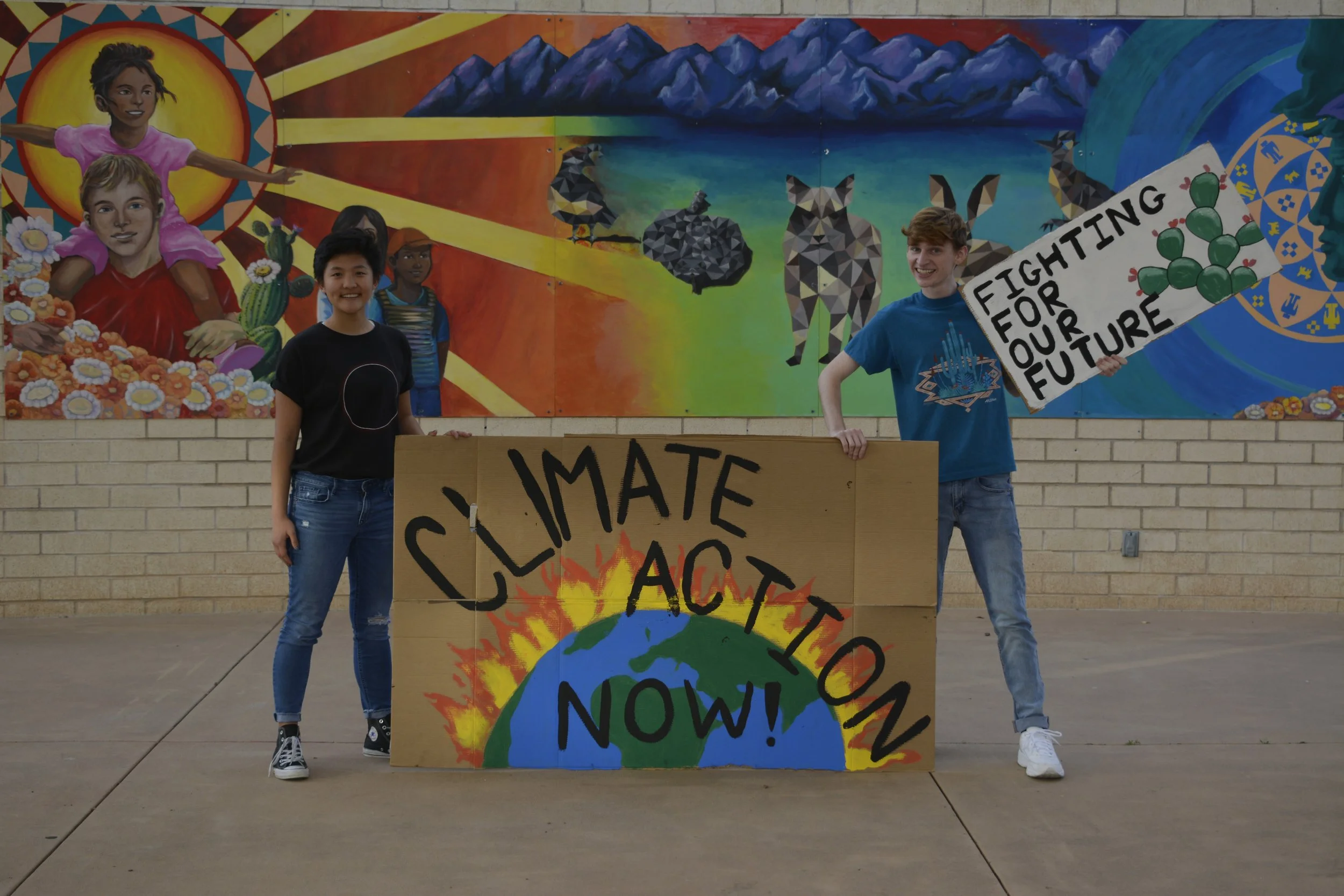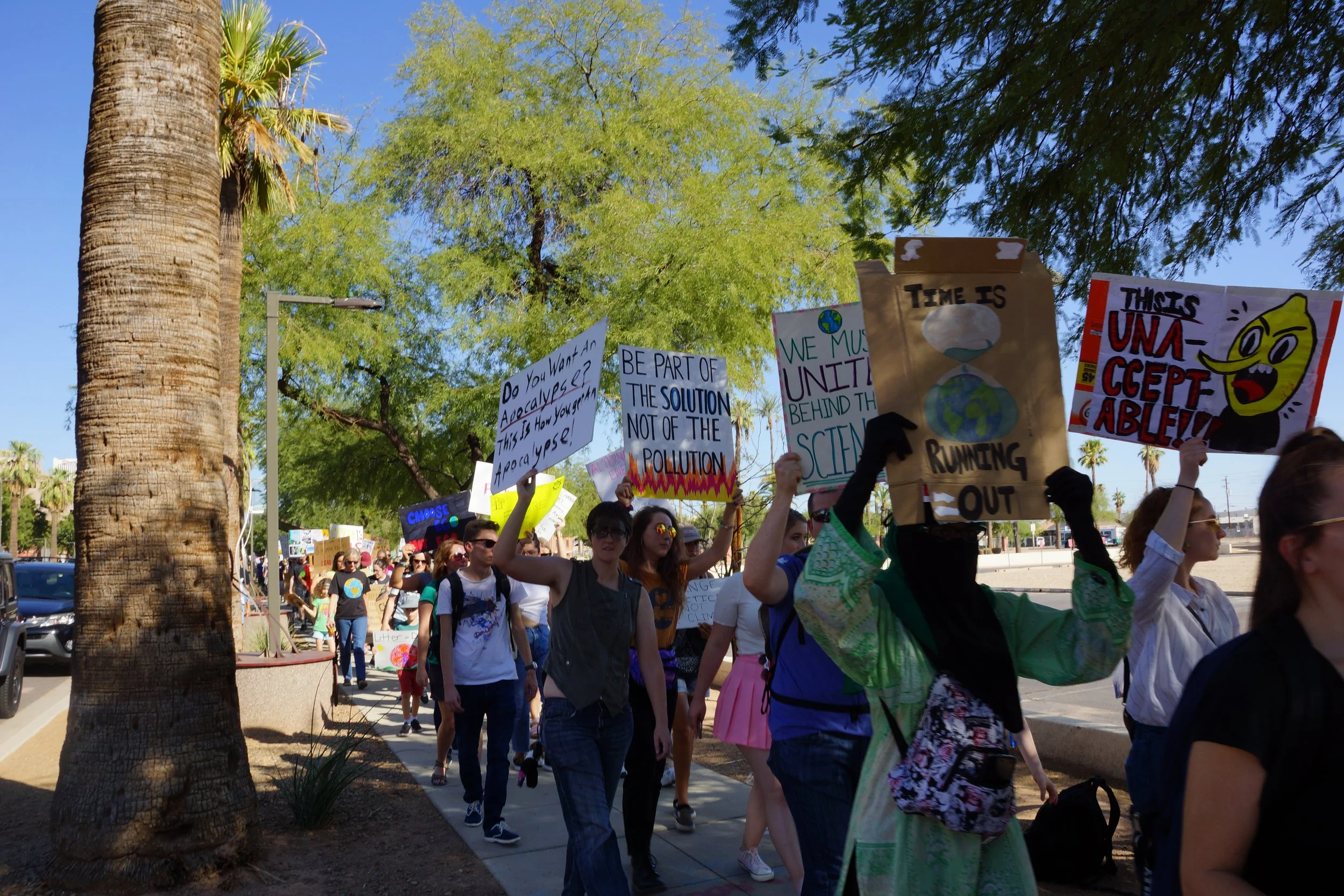
What is Climate Justice?


Climate justice protects everyone from the effects of climate change by including representation of indigenous cultures, minorities, and other vulnerable, marginalized communities when looking for solutions.
Cowspiracy: The Sustainability Secret
David Attenborough: A Life on Our Planet (Available on Netflix)
Climate justice protects everyone from the effects of climate change by including representation of indigenous cultures, minorities, and other vulnerable, marginalized communities when looking for solutions.
In Tucson, as temperatures continue to rise, the area with the least shade and man-made tree canopies is also the area where most BIPOC Tucsonans live. There are numerous examples of this, and the City of Tucson is implementing policies to address this.
According to IEP, by 2050 1.2 billion climate refugees will be displaced from their homes due to climate disasters.
Climate justice means looking to the past to fix our future: how colonizers tore cultures apart and destroyed land, impacting the biodiversity of Earth today.
